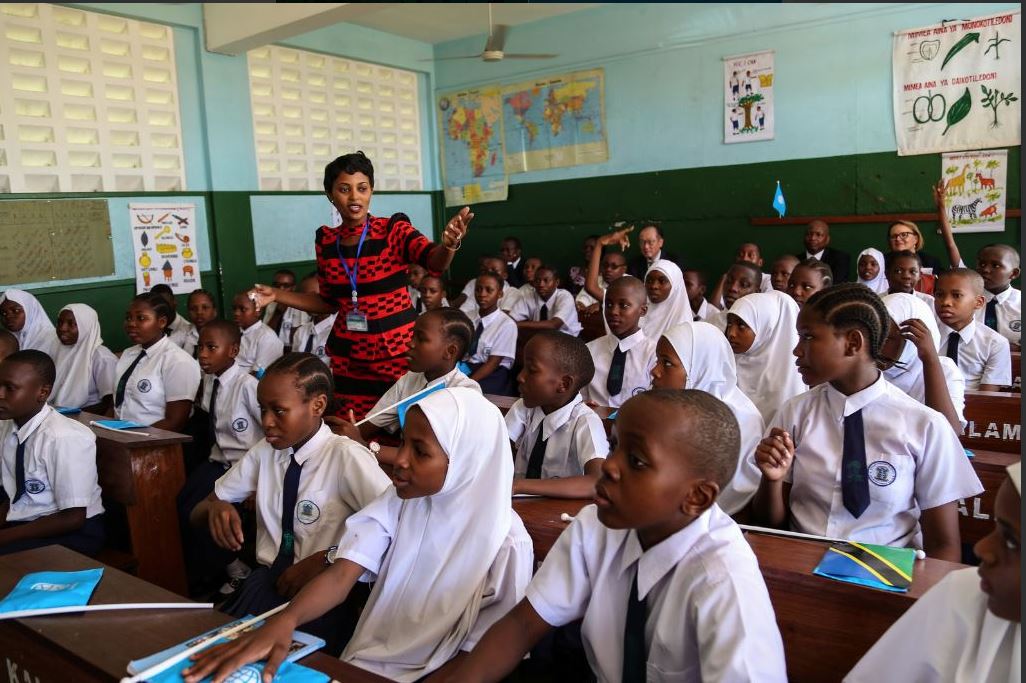Mainstreaming the participation in education, sport, recreation, training and employment.
Education

To address the learning loss from unprecedented disruptions in education, the CDB,
CARICOM and OECS, commissioned a Learning Recovery and Enhancement Programme, abbreviated as L-R-EA-P and pronounced
The CARICOM Standards for the Teaching Profession is an aspirational collection of statements of performance and value expectations for members of the teaching profession in the CARICOM region. It is designed based on the following principles:
1. That being stirred1into the profession of teaching is developmental and occurs within communities of practices. As such,no individual is fully developed as a teacher upon graduation from teacher training and the potential for growth should be aligned with career development.
The CARICOM Secretariat’s Education Programme ensures inclusive, equitable, quality education and promotes lifelong learning opportunities for the Region. As part of this responsibility, the Programme has developed a Human Resource Development 2030 Strategy, which is currently being implemented.
COVID-19 has presented extraordinary circumstances that have required CANTA to review aspects of the delivery of CVQs and make adjustments to the CANTA Quality Assurance Criteria Guidelines (2015); in particular, to assessment procedures and the collection of evidence. As the health and safety of candidates is of paramount importance, the use of electronic and digital technologies throughout the assessment process is encouraged.
The Caribbean Examination Council (CXC) is an institution that provides regional and internationally recognised secondary school leaving examinations relevant to the needs of the region; assist in Common Entrance and other types of examinations; produce teaching materials and train teachers to use the CXC syllabi; and advise regional governments on education.
Other quick Facts
The Council of Legal Education was created by an Agreement signed in 1971 by Barbados, Dominica, Grenada, Guyana, Jamaica, Trinidad and Tobago, the University of the West Indies and the University of Guyana.
The Caribbean Development Bank (CDB), is a regional financial institution which was established by an Agreement signed on October 18, 1969, in Kingston, Jamaica, and entered into force on January 26, 1970. The Bank came into existence for the purpose of contributing to the harmonious economic growth and development of the member countries in the Caribbean and promoting economic cooperation and integration among them, having special and urgent regard to the needs of the less developed members of the region (Article 1 of the Agreement establishing CDB).
The Caribbean Law Institute (CLI) was established in 1988 under a grant from the United States Agency for International Development to promote such activities that would further clarify the laws affecting trade, commerce and investment in the Region, while at the same time respecting the unique needs of local jurisdictions.
Turkeyen Campus
The University of Guyana (UG) was launched on October 1, 1963 following assent being given to the University of Guyana Ordinance on April 18, 1963, by Governor, Sir Ralph Grey. When it opened its doors on October 2, 1963, UG functioned as an evening institution with only 164 students enrolled for classes in three Faculties – Arts, Natural Sciences and Social Sciences. Classes were held between 17:30 h and 21:30 h at the Government Technical Institute and Queen’s College, where laboratory facilities could be shared.